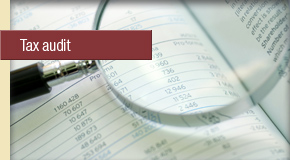
|
What is law abuse? (art. L 64 du LPF)
Following the definition given by a famous law professor (Pr. Cozian), law abuse is the punishment given by a talented taxpayer. They don’t infringe any rules, are not tax evaders, but they work against the spirit of the law. Law abuse is also a manipulation of legal mechanisms when a choice is offered between several ways to achieve a goal. The abuse of law is the abuse of legal choices. Under french tax law, law abuse includes two behaviours: I. a simulation or II. a fraud. I. The law abuse may appear as a legal lie to mislead the tax authority (e.g. false contracts are aimed to mislead by using a legal appearance). II. In case of law abuse caracterised by fraud, there is no simulation, nor lies. The contracts are true but the legal arrangement is motivated by tax avoidance. The law abuse outlines are very difficult to define. They give rise to various case law and legal commentaries. The consequences of law abuse are very strict. The tax authority is authorised to claim the avoided tax plus late interests at the monthly 0,40% rate plus a 80% penalty. Moreover, the tax authority frequently also controls the beneficiary of the abuse of law. To contest law abuse, the taxpayer must demonstrate a further interest than tax avoidance. That’s why it is essential for companies and individuals to reason their agreements explicitly and with appropriate goals. Taking into account the reasons for agreements very early in the business process will allow for successful defense of further tax adjustments. Some taxpayers have defended with success their position, but a case law study illustrates that similar situations have been judged differently. That’s why the quality of answers and demonstration to the tax authority and to the court is essential during all the litigation procedure. |
